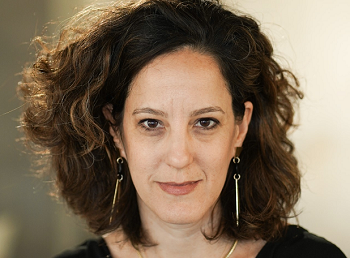The gender pay gap in the UK has grown for the first time in six years, but the freelancing sector is bucking the trend. Gali Arnon, CMO at Fiverr, looks at why there is such a dramatic difference between the attitudes of UK businesses in fair pay for women, and that of the freelance platform.
According to data from the Office for National Statistics, the average gender pay gap for full time workers actually increased from 2018 to 2019, from 8.6% to 8.9%. Since 2012, the chasm has reduced by just 0.6%. To put the latest figures into perspective, women currently earn just over 80% as much as their male counterparts for completing the same work.
A great deal of research has been done looking at why this is a persistent social problem. There are studies that say women settle for less and that men are four times more likely than women to ask for a raise. And when women do, they tend to ask for 30% less than men do. The list goes on, with a variety of weak justifications as to why the discrepancy is still so prevalent in modern-day society.
However, a majority of research done on the pay gap to date has been around full-time employment. But we live in a different world now, one where the job market is changing on an almost daily basis. What about women who do not have a single full-time employer? What about skilled female freelancers and women who take on a side hustle? Do they see the same type of discriminatory behavior as that of their full-time counterparts?
Some studies show the gender pay gap does exist in the freelance economy. This could be because the gap in the traditional employee environment is carried over when female freelancers first begin working with clients. Many judge their pay rates by what they were earning in their old jobs. Therefore, it makes sense that research shows evidence of women feeling the need to charge less than men for their services from the start.
But freelancing is on the rise. According to Office of National Statistics, self employed workers now account for 15% of the working population in the UK. Furthermore, over the past 10 years, the number of highly skilled female freelancers in the UK has increased by 63%. There is a reason freelancing is on the rise, and there is a reason women are attracted to it: more equal pay, specifically on platforms, along with more flexibility.
At Fiverr, a leading global marketplace for freelance services, we found that female freelancers are making 20% more than male freelancers. Not only are they making more money overall, but they’re also making more on a per project basis. It’s a staggering difference to that of the corporate world, and could be a contributing factor to the 68% increase in female freelancers of the past decade.
Although the gap on the Fiverr platform is virtually nonexistent and, in a way, favours women, we are not ignorant of the fact that the gap for female freelancers working in the offline world may still have a way to go. On freelancing platforms, sellers are more often than not judged on the quality of work versus their gender, sexual orientation, race, or religion. They are judged based on the credentials on their profile, a visible portfolio, and reviews from past clients. However, in the offline freelancing world, women are more likely to work part-time than men and charge less than men among a slew of other things.
It is essential that we as a society start to value work not based on gender, race, religion, or sexual orientation but on the experience and skills of the person doing the work and the quality of their output. There is still a lot of work to do, but it is reassuring to see the progress that has been made for platform-based freelancers and the role that technology is playing in creating a more equal playing field for the future of work.
By Gali Arnon
CMO
Fiverr
About the author
Gali Arnon has served as our Chief Marketing Officer since October 2017. Prior to joining Fiverr, Ms. Arnon served as Chief Executive Officer of Brightcom Group Ltd, a digital marketing and publicly traded company in India, from 2015 to 2017. Between 2014 and 2015, Ms. Arnon was Senior Vice President of Marketing and Operations at SimilarWeb Ltd., a web analytics company. Prior to that, she served in multiple vice president roles at 888 Holdings Plc, an online gaming platform and publicly traded company in London, from 2009 to 2014. Ms. Arnon holds a B.A. and M.B.A. from Tel Aviv University in Israel.
